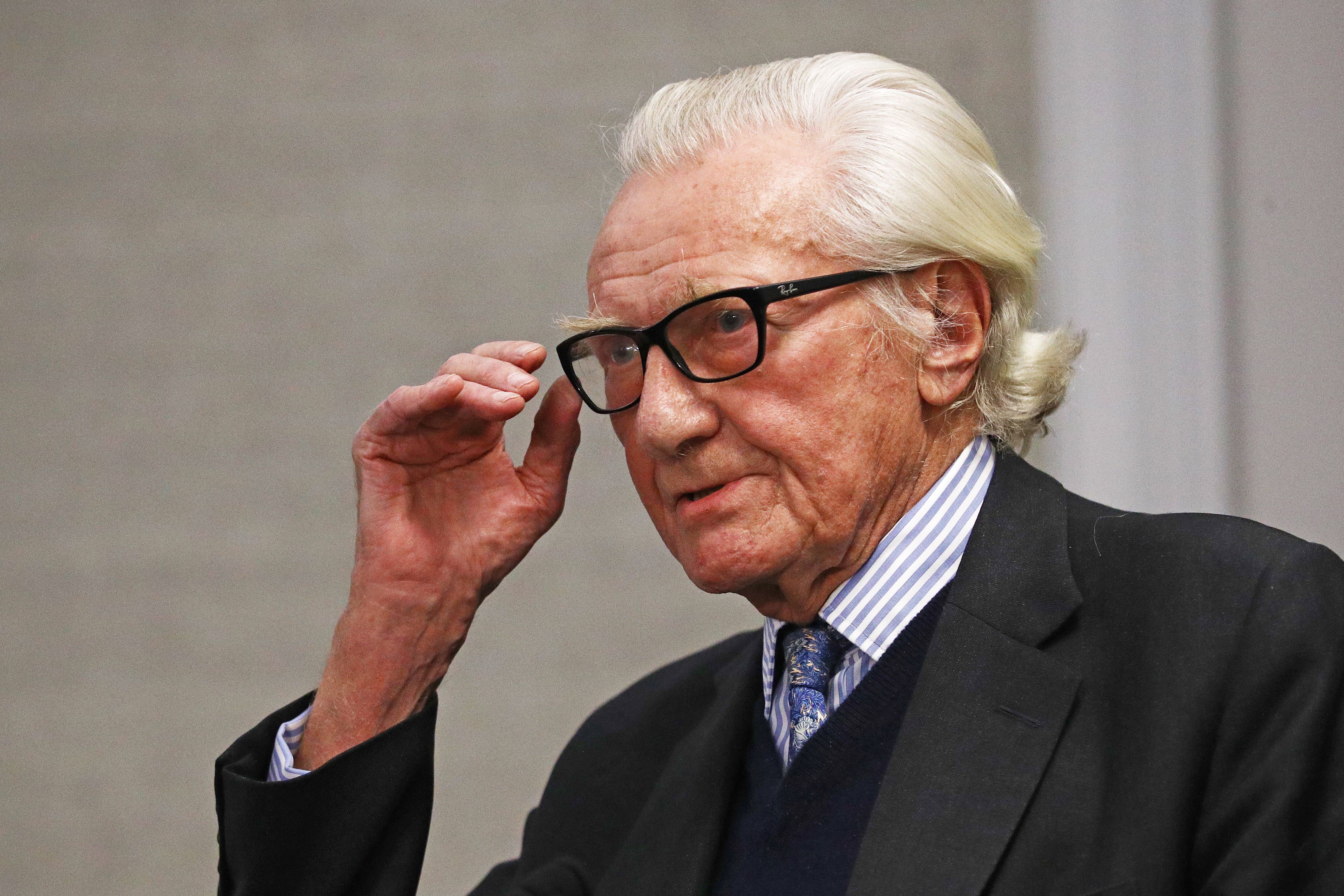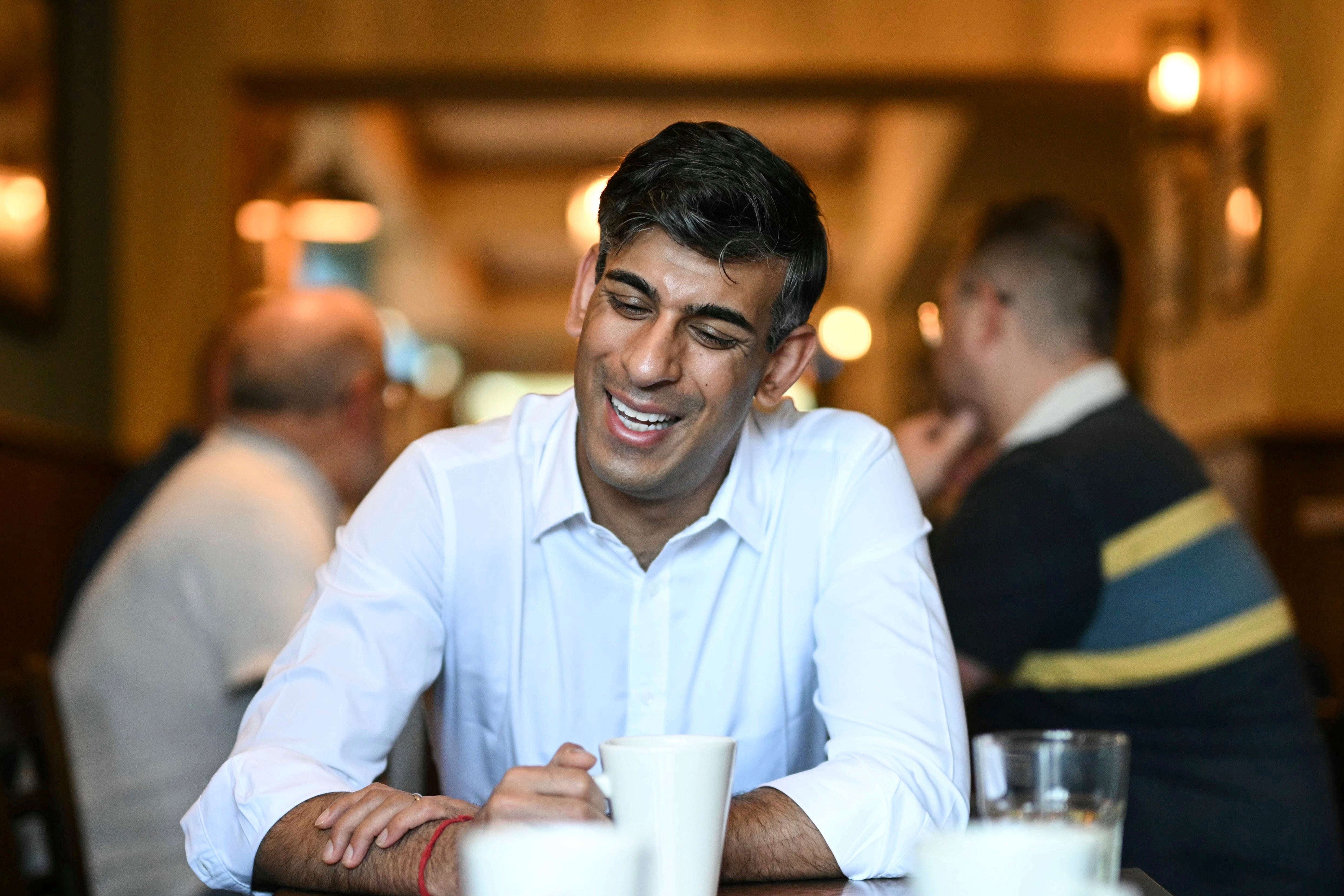Refusal to mention EU makes this election most dishonest in modern times, warns Heseltine
As an exclusive poll shows that voters link falling living standards and failures on immigration to leaving the EU, Lord Heseltine warns that the election should focus on Brexit
Your support helps us to tell the story
From reproductive rights to climate change to Big Tech, The Independent is on the ground when the story is developing. Whether it's investigating the financials of Elon Musk's pro-Trump PAC or producing our latest documentary, 'The A Word', which shines a light on the American women fighting for reproductive rights, we know how important it is to parse out the facts from the messaging.
At such a critical moment in US history, we need reporters on the ground. Your donation allows us to keep sending journalists to speak to both sides of the story.
The Independent is trusted by Americans across the entire political spectrum. And unlike many other quality news outlets, we choose not to lock Americans out of our reporting and analysis with paywalls. We believe quality journalism should be available to everyone, paid for by those who can afford it.
Your support makes all the difference.Michael Heseltine has warned that the 2024 general election campaign “will be the most dishonest in modern times” because of the refusal of the main parties to debate the consequences of Brexit.
The former deputy prime minister, who fell out with the Conservatives over leaving the European Union, has written exclusively for The Independent explaining how the big issues in this general election – the economy, immigration and defence – all need to be debated in the context of the UK’s relationship with the EU.
But he claimed that Labour and the Tories are too scared to discuss Brexit because of the potential impact on their voter bases.
It comes as Labour leader Sir Keir Starmer uses his first keynote speech of the election to focus the campaign on himself personally in a presidential style push for victory.
But noting that Sir Keir and Rishi Sunak are avoiding discussing “the elephant in the room”, Lord Heseltine wrote: “Both major parties are afraid of losing votes to the hard right. Labour needs to rebuild its red wall while the Conservatives run scared of Reform.”
However, he argued that almost no major issue can be discussed without reference to the subject which has, in effect, dominated British politics since the EU referendum in 2016 and arguably since the Maastricht Treaty in 1992 which shattered John Major’s government.

Lord Heseltine’s case is supported by exclusive polling for The Independent by Redfield &Wilton which reveals that British voters link Brexit to two of the biggest problems in the country – the cost of living and immigration.
While the poll showed that only 1 per cent think Brexit is the most important issue, it also revealed that the top issue is the economy on 37 per cent, and the third issue immigration on 15 per cent; both are tied to leaving the EU.
The survey of 1,500 voters shows that 60 per cent feel worse off since the Tories won in 2019 and took the UK out of the EU in 2020. Despite better prosperity being promised by Brexiteers, a mere 13 per cent feel better off.
The Conservatives have claimed that the reason for the cost of living crisis and economic downturn was the Covid pandemic followed by Russia’s invasion of Ukraine, causing a major shock in worldwide supply chains and forcing up inflation.
However, the poll’s findings on immigration may be more troubling for Rishi Sunak as he tries to win over voters, with a damning indictment on Brexit.
The survey showed that 39 per cent believe illegal immigration is higher because of Brexit compared to 16 per cent lower and 23 percent similar. On legal immigration, 36 per cent believe Brexit has made it higher, 14 per cent lower and 27 per cent similar. Asked if it has become a bigger issue because of Brexit, 38 per cent agreed it is “more of an issue” while 13 per cent “less of an issue.”
This is despite the Vote Leave slogan of “take back control” aimed at tightening Britain’s borders.
Lord Heseltine and others have pointed out that, being outside the EU, Britain has been unable to send back migrants coming in small boats and through other means.

On the wider piece, he said that no issue can be taken without a serious rethink of the last eight years.
He said: “The state of our economy, defence and environment, the need to level up our society, control immigration and restore Britain’s standing in the world. None of these issues can be honestly addressed in isolation from our relationship with Europe. Yet Europe is the no-go area.”
Highlighting immigration, which is seen as a top-three issue by pollsters in the campaign, he questioned how there could be a serious debate without discussing Europe.
“Why cannot the two major parties debate immigration in the round? The boats contain just 5 per cent of those who might or might not be sent to Rwanda. They are a small part of the near 700,000 net immigration figure – the real elephant in the room.
“Until we consider the consequences for our farms, care homes, hospitals and universities of culling the numbers, all the talk of change, the constant assertion of ‘plans’ amount to little more than platitudes blowing in the wind. Whatever we decide to do, we need to work more closely with our European neighbours, who share our experiences.”
On defence, he warned that the possible impending election of Donald Trump in the US means Britain can no longer rely on Nato for its security needs, and is faced with a more isolationist policy in Washington DC.
He asked: “What if the Republican Party reverts to its position in 1940 when it pressed President Roosevelt to promise not to enter the war? He kept that promise until Hitler declared war on America in 1941. Nightmare though that would be, is such a possibility being seriously addressed?”

His solution: “We should be discussing a closer defence relationship with Europe. Platitudes don’t have much firepower.”
He argued that “the world is failing” and Britain “can do little alone” about famines and droughts pushing millions of people around the globe from their homes or in the face of wars.
The peer added: “There is brave talk of turning a corner, of a plan working. How can we seriously believe we can significantly improve our economic situation after severing our connections with our largest and nearest? How do you build Silicon Valley here if, for years, you cut yourself off from European research and return to the table as a supplicant? Our companies must compete with American and Chinese companies technologically underpinned by huge defence and space budgets.”
He insisted that it is imperative to turn the general election debate back to Brexit, built on “the lies” told by Brexiteers to get the Leave vote over the line.
“The Brexit case amounted to a viper’s nest of mantras. ‘We want our country back.’ ‘They need us more than we need them.’ ‘Bring back control’. ‘Get Brexit done.’
“Eight years have passed. Brexiteers have had their hands on the tiller all that time. We had the extraordinary spectacle of a minister for exiting the European Union (as mad as having a minister for common sense).”
And he questioned what Brexit has achieved: “Why is it so few new trade deals have been done? Why has there not been the promised bonfire of regulations? The answer is simple. There were no plans. It was a pack of lies.”
Join our commenting forum
Join thought-provoking conversations, follow other Independent readers and see their replies
Comments